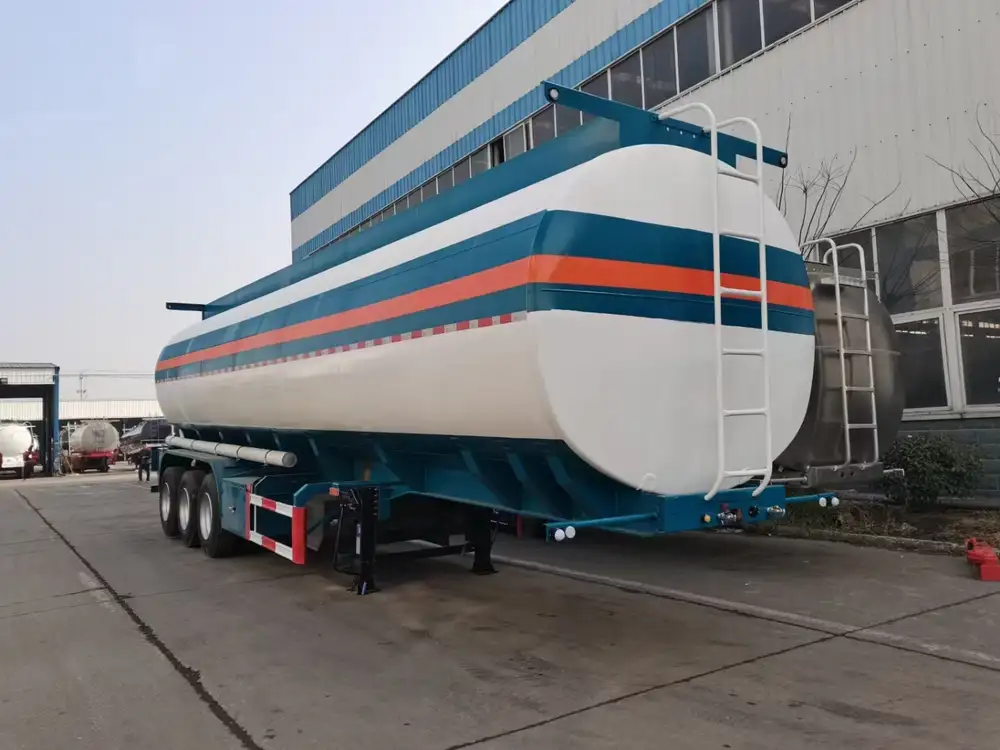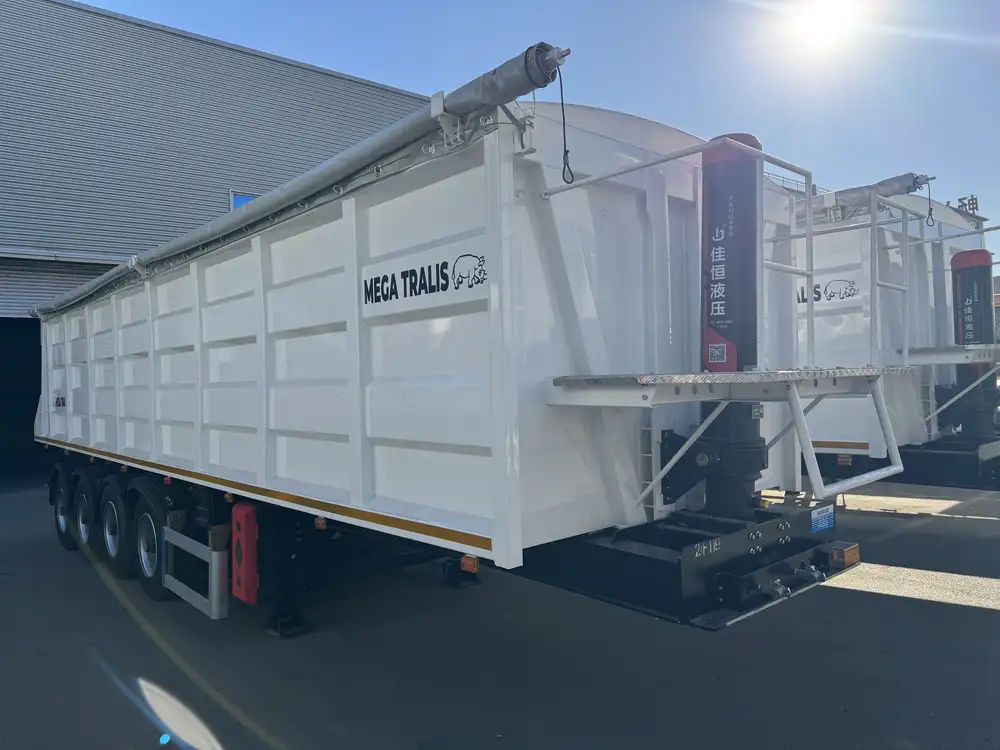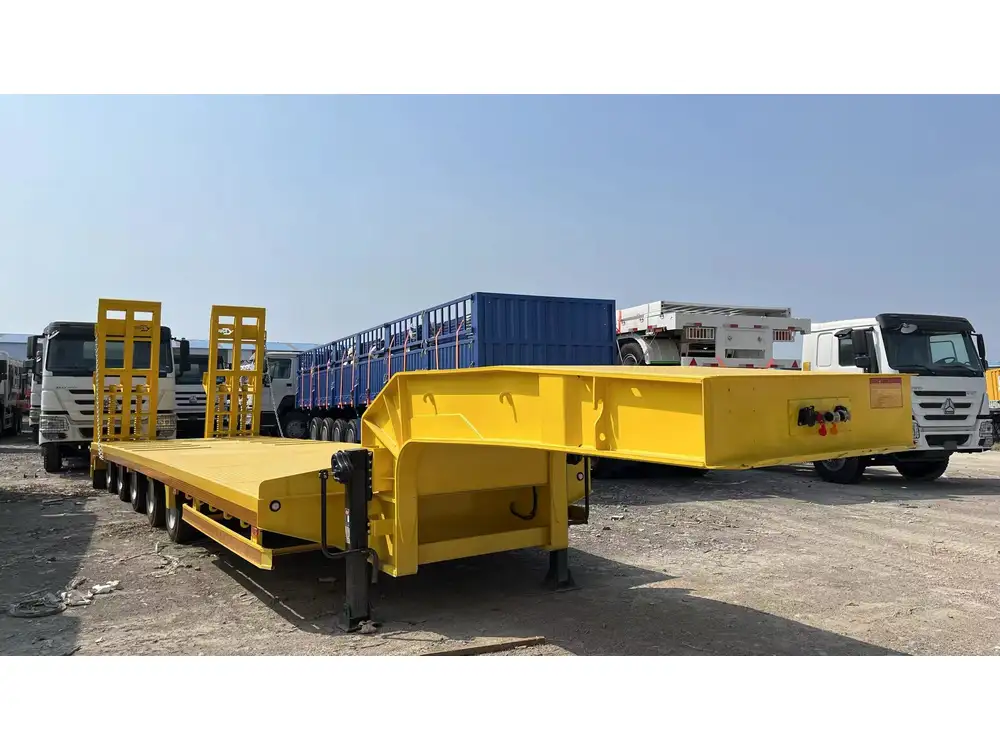Hydraulic systems are the lifeblood of dump trailers, enabling them to perform effectively and efficiently. One crucial component of these systems is the hydraulic fluid, which serves multiple purposes, including lubricating the components, transferring power, and dissipating heat. In this comprehensive guide, we delve into the nuances of selecting the right hydraulic fluid for your dump trailer, ensuring optimal performance and longevity.
Understanding Hydraulic Fluids
Types of Hydraulic Fluids
Hydraulic fluids can be classified into several categories based on their composition:
Mineral Oil-Based Fluids
- Characteristics: Derived from refining crude oil, these liquids are the most common hydraulic fluids. They often contain anti-wear additives, anti-oxidants, and rust inhibitors.
- Applications: Suitable for general hydraulic systems in construction and agricultural machinery.
Water-Based Fluids
- Characteristics: Consisting of water and additives, these fluids offer fire resistance and thermal stability.
- Applications: Often used in industrial settings where fire hazards are a concern but not commonly in dump trailers due to potential freezing issues.
Biodegradable Fluids
- Characteristics: Typically derived from renewable resources, such as vegetable oils, these fluids are environmentally friendly.
- Applications: Ideal for operations in ecologically sensitive areas.
Synthetic Fluids
- Characteristics: Engineered to provide superior lubrication and a wider temperature range, synthetic fluids are often more expensive but provide excellent performance.
- Applications: Best for extreme conditions or specialized applications.

Key Properties of Hydraulic Fluids
When selecting hydraulic fluid for a dump trailer, consider the following key properties:
- Viscosity: This refers to the fluid’s resistance to flow. Hydraulic fluids should have the appropriate viscosity to ensure smooth operation of hydraulic components, particularly under varying temperature conditions.
- Thermal Stability: Fluids must maintain performance at high operating temperatures and resist oxidation.
- Lubrication Qualities: Effective lubrication minimizes wear and prolongs the lifespan of hydraulic components.
- Compatibility: Ensure the fluid is compatible with seals and materials present in your hydraulic system to prevent leaks and damage.
Factors to Consider When Choosing Hydraulic Fluid
Manufacturer Recommendations
Consult the manufacturer’s specifications for your dump trailer. These documents typically outline compatible hydraulic fluids, ensuring optimal performance. Using non-recommended fluids can lead to severe damage and void warranties.

Operating Environment
Consider the environment in which your dump trailer operates. For instance, high temperatures may necessitate fluid with higher thermal stability, while colder climates might demand fluids with lower viscosity to maintain fluidity.
Frequency of Use
For trailers used frequently or in harsh operating conditions, investing in higher-quality hydraulic fluid, such as synthetic or biodegradable options, can improve performance and reduce maintenance costs long-term.
Cost vs. Performance
Weigh the cost of hydraulic fluids against the potential benefits of using higher-end options. While mineral oil-based fluids may be less expensive initially, synthetic fluids can save users money over time due to less frequent replacements and lower maintenance needs.

Common Hydraulic Fluids for Dump Trailers
| Type | Description | Common Applications |
|---|---|---|
| AW Hydraulic Oil | Anti-Wear fluids with additives for protection. | General hydraulic systems. |
| Biodegradable Oil | Eco-friendly, derived from vegetable oils. | Use in environmentally sensitive areas. |
| ISO 32 Graded Oil | Standard hydraulic fluid with medium viscosity. | Widely used in various machinery. |
| ATF (Automatic Transmission Fluid) | Excellent lubrication and anti-wear properties. | Alternative for some hydraulic systems. |
Steps to Change Hydraulic Fluid in Your Dump Trailer
1. Safety First
- Wear Personal Protective Equipment (PPE): Always wear gloves and goggles when handling hydraulic fluids.

2. Prepare Tools and Materials
- Required Tools: Wrench set, drain pan, fluid pump, and a funnel.
- New Hydraulic Fluid: Ensure it meets the specifications set by your dump trailer’s manufacturer.
3. Drain Old Hydraulic Fluid
- Locate the drain plug underneath the trailer and position a drain pan to catch the old fluid.
- Remove the plug and allow the fluid to fully drain.
4. Flush the System (Optional)
- For optimal performance, consider flushing the system with a flushing agent to eliminate any contaminants.

5. Add New Hydraulic Fluid
- Use a funnel to pour in the new hydraulic fluid until reaching the recommended level.
- Replace the drain plug securely.
6. Check for Leaks
- Start the hydraulic system and check for leaks around the seals and connections.
7. Dispose of Old Fluid
- Follow local regulations for the disposal of hydraulic fluids, as they can be hazardous to the environment.

Troubleshooting Hydraulic Fluid Issues
Common Symptoms and Solutions
| Symptom | Possible Causes | Solutions |
|---|---|---|
| Slow Operation | Low fluid level or contaminated fluid | Check level; replace fluid if necessary. |
| Overheating | Incorrect viscosity or fluid breakdown | Switch to higher viscosity or synthetic fluid. |
| Erratic Movements | Air in the system or low fluid levels | Bleed air from the system and check levels. |
| Fluid Leaks | Damaged seals or fittings | Inspect and replace damaged components. |
Conclusion
Selecting the right hydraulic fluid for your dump trailer is paramount to maintaining its operational integrity and maximizing performance. By understanding the types of fluids available, key properties, and manufacturer recommendations, you can make informed decisions that will extend the life of your equipment and enhance productivity.
Investing time and resources in selecting suitable hydraulic fluids will yield long-term benefits, reducing overall maintenance and repair costs while ensuring smooth operations in your dump trailer.
Should you have further questions or require expert guidance, don’t hesitate to reach out for professional assistance in hydraulic system management and maintenance.



